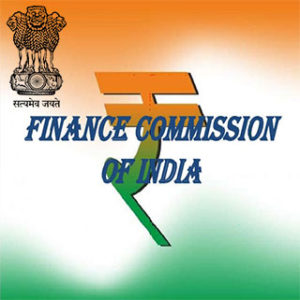
Finance Commission
Finance Commission
In Centre state financial relations Finance Commission plays an important role. According to the Constitution the President is empowered to set up a Finance Commission after every five years to make recommendations to him about the distribution of net proceeds of taxes to be divided between the centre and the states. The Commission is also required to suggest the principles on which grant-in-aid of the revenues should to be given to the state governments out of Consolidated Fund of India.
It is also required to give its view on any matter which may be referred to it by the President in the interest of sound finances. So far President of India has been regularly setting up such a commission after every five years and each time its terms of reference has been made wider and wider. By and large, Union Government has also been accepting its recommendations and as such it has adopted liberal attitude about the recommendations of the Commission. The Commission has touched even such subjects as debt burdens of the states, returns of public sector undertakings, etc. But even then there is demand by some states that distribution of resources should be such that these favour relatively poor states.
The role of Finance Commission has considerably eclipsed because increasing role of Planning Commission through which more funds are transferred to the states than through the Finance Commission. Not only this but it is Planning Commission which regulates discretionary grants and not the Finance Commission.
Planning Commission:
In centre-state relations a very significant role is being played by Planning Commission. It has even reduced the importance of Finance Commission. It is an extra constitutional body. It has more resources to disburse than the Finance Commission.
It decides plan outlay of each state on which depend all developmental activities of the states. Since its meetings are to be presided over by the Prime Minister, therefore, it is virtually dominated by the central government, through which funds flow to the state government.
Grand-in-Aid to the States:
According to the Constitution states are to receive grant-in-aid from the Centre out of Central revenue. It is to be given with the approval of the parliament to a deserving state out of Consolidated Fund of India. The amount in each case is to be decided by the Parliament. The Central Government also gives grants both capital and recurring to the states for implementation of certain schemes like uplift of scheduled castes and scheduled tribes. Special Grant-in-aid is also given by the Central Government to the state governments of Assam, Bihar, Orissa and West Bengal out of Consolidated Fund of India. The amount to be paid in each case is to be decided by the President of India.
Weak Position of the States:
In administrative, legislative and financial matters, as compared with the centre, the position of the states is very weak. The states are always to look forward to the centre and such a situation continues no matter whether same political party is in power both at the centre and the states, or there are different political parties in position and authority at these two levels of Indian federation.
In financial field, the states are to depend on the central government even for their development. Planning Commission, which finally decides about plan projects plays a big role in the development of the states, though it is the creation of and is controlled by the central government.
Then another reason of state’s dependence on the central government is that all foreign assistance which flows into India and is quite massive, is channelised through the central government. Once the extent of foreign aid is decided and made available to India, it becomes the responsibility of the Central Government to decide in which state and to which extent the money should be poured in.
Under the Constitution, no state on its own can sign any agreement with any international agency or organisation. States government now’s however, are inviting foreign investments in certain priority areas and signing agreements with foreign government.
Not only this, but Central Government can bring any subject from the state to the concurrent list there by depriving the former of many of its financial resources. Even in the distribution of financial resources, the central government can patronise the states which have political parties of their choice in power and thus use economic power for strengthening its political authority and position.
That is the reason that usually those Chief Ministers who do not belong to the political party in power at the centre, complain that they are being given step-motherly treatment. Though in matters of financial allocation states may be consulted, but in actual practice final decision in this regard finally rests with the centre.
Since there are always financial limitations, therefore, the states which are deliberately made to starve of the finances, can hardly initiate or execute plans of far-reaching magnitude to satisfy the electorates, who had returned them to power on certain promises.